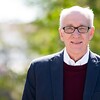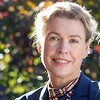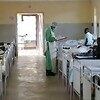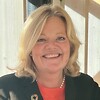Fritextsökning
Artiklar per år
Innehållstyper
-

"Unclear proposal from the EU Commission on how to solve the MDR challenges"
Even before the EU regulation on medical devices (MDR) came into force, medical technology companies and doctors were concerned that it would endanger the availability of medical devices in the EU. Unfortunately, the fears have come true.
-

Räddade liv med sina teorier – blev utfryst och slutade på mentalsjukhus
Envishet, flit och god slutledningsförmåga hade han förvisso. Men ingen kan säga att den ungerske läkaren Ignaz Semmelweis (1818-1865) var begåvad med vare sig tur eller tajming.
-

Sweden is organising a large life science conference as part of the EU presidency
On 26-27 June, Sweden will host a European meeting on life science.
-

“Everyone is screaming for talent”
Attracting talent is one of the life science industry’s major future challenges, which was one of the conclusions of the panel discussion that ended the New Horizons in Biologics & Bioprocessing conference on 15 December.
-

Höstens mest lästa krönikor
Här nedan läser du de mest lästa krönikorna i Life Science Sweden och systertidningen Medtech Magazine från hösten och vintern.
-

Pia Steensland går till Pfizer
Den tidigare riksdagsledamoten Pia Steensland börjar på Pfizer som Director, Policy & Public Affairs.
-

SUS prövar CAR-T-terapi mot fler cancerformer
Behandling med CAR-T-cellsterapi ska prövas för flera ovanliga former av lymfom i en klinisk studie som vid årsskiftet inleds vid Skånes universitetssjukhus (SUS).
-

ALS – When the body has given up, but the brain persists
The nerve disease ALS gradually deprives the patient of control over the muscles and, eventually, also of speech. The eyes continue to function, though, and with the help of, among other things, a Swedish-developed invention, communication with the outside world can continue. “It’s their window to the world,” says ALS researcher Caroline Ingre.
-

She creates pharmaceuticals on a 3D printer
The correct dosage for each individual, regardless of whether the pharmaceutical is for a seriously ill child or a frail elderly person, is the mission of a well-advanced project with 3D-printed drugs at Uppsala University. “It will soon be available in clinics”, says Christel Bergström, who is heading the project.
-

ALS – När kroppen har gett upp men hjärnan finns kvar
Nervsjukdomen ALS berövar patienten gradvis kontrollen över musklerna, och till sist även talet. Men ögonen fortsätter att fungera, och med hjälp av bland annat en svenskutvecklad uppfinning kan kommunikationen med omvärlden fortsätta. "Det är deras fönster mot världen", säger ALS-forskaren Caroline Ingre.
-

Atlas Antibodies flyttar till Forskaren – "Viktigt steg"
Bioteknikbolaget Atlas Antibodies flyttar sitt huvudkontor till Forskaren i Hagastaden.
-

Prisas för arbete mot antibiotikaresistens: “Behöver pumpa ut nya molekyler”
Professor Otto Cars får en hedersutmärkelse för sitt arbete med att bromsa utvecklingen av antibiotikaresistens – och han är långt ifrån färdig: “Vi måste tänka större, inrätta ett globalt institut där många forskare får stora resurser”.
-

Vårt jobb är att ta höjd för det osannolika
"Rymdfärder och läkemedelsutveckling har många likheter. De är hårt reglerade verksamheter där minsta misstag kan få ödesdigra konsekvenser", skriver Anna Törner i en krönika.
-

Neanderthal genes and Nobel Prize in a popular lecture at Bioscience
An inherited gene variant from our ”evolutionary cousins” – the extinct Neanderthals – may affect how our bodies break down certain drugs. “It’s only a matter of time before we actively start screening for it,” said KI researcher Hugo Zeberg when describing the study at Bioscience 2022.
-

Svensk blir chef för Astra Zeneca i Europa och Kanada
Stefan Woxström har utsetts till Senior Vice President för Astra Zeneca i Europa och Kanada och är därmed ansvarig för att leda företaget i de regionerna.
-

He is heading a new company for the development of Coegin’s cancer drug
The biotechnology company Coegin Pharma places the development of its drug candidate AVX420 in a newly formed company, Avexxin Oncology, based in Norway, and John Zibert will be the CEO.
-
Storsatsning i Uppsala – life science-område ska växa kraftigt
Uppsalas största life science-kluster ska bli större – mycket större. Området i Fyrislund ska tredubblas till ytan och ge plats för ytterligare 12 000 arbetsplatser, enligt ett förslag till ny detaljplan som nu är ute på samråd.
-

Cannabisklinik får verksamhetsförbud
Aureum Healthcare i Stockholm får verksamhetsförbud med omedelbar verkan meddelar Inspektionen för vård och omsorg, enligt Läkartidningen.
-

“We need to build flexible operating theatres”
Flexible operating theatres, micro-sensors on surgeons to monitor their well-being and 3D images projected onto organs to be operated on. These are a few ideas that three specialist surgeons are suggesting for the operating theatre of the future.
-

Cytel Inc acquires the SDS Group
The multinational statistical software developer and contract research organization Cytel Inc, headquartered in Massachusetts, USA, acquires the Swedish consulting company SDS Life Science.
-

“We aim to be a start-up company with an academic spirit”
Chronic pain and Alzheimer’s are two diseases that plague many people worldwide and seem impossible to cure. However, Huddinge-based company Alzecure is working on developing drugs for both conditions.
-

Ebolautbrott i Uganda har tagit 29 människors liv
Ebolautbrottet i Uganda växer. Hittills har 63 smittats och viruset har spritt sig till fem regioner. Läkare utan gränser säger att läget är bekymmersamt.
-

“We need to keep investing in research and innovation”
Jenni Nordborg has worked for just over four years to highlight life science in Sweden. Her mandate as national coordinator ends in December 2022. ““Life sciences has been a long-term priority of governments since many years and I have no doubt that the ambitions will be strong going forward”, says Jenni Nordborg.
-

Biosimilars bring price pressure, but are they sufficiently used?
When biosimilars were introduced just over 16 years ago, hopes were raised that they would give many more patients access to effective but otherwise extremely expensive treatments with biological drugs. So, how well has Swedish healthcare used biosimilars? The answer partly depends on whom you ask.